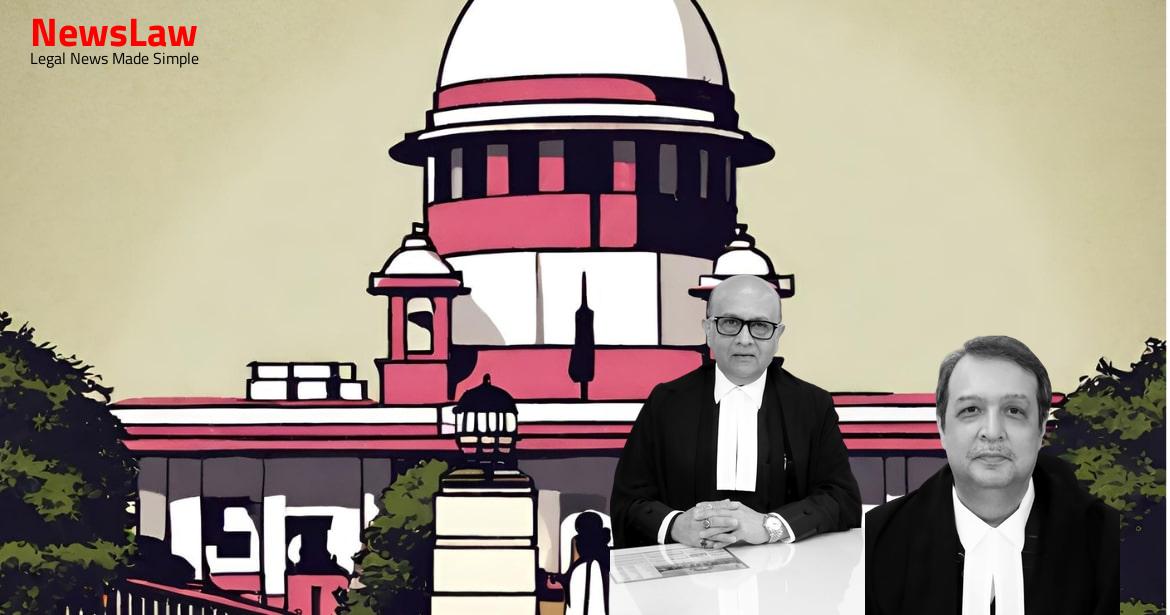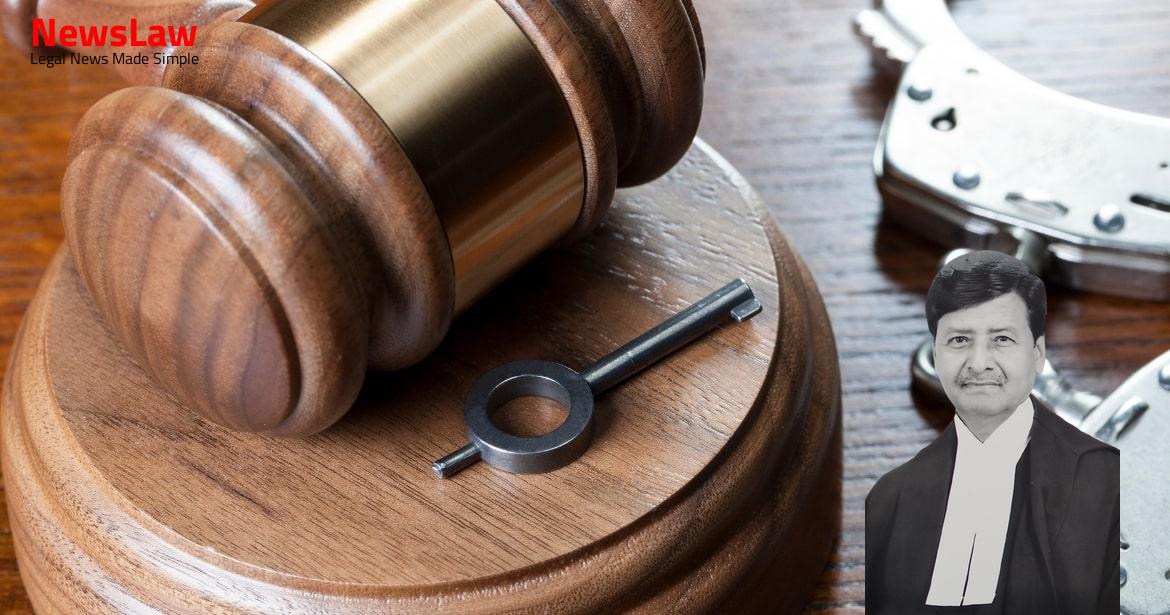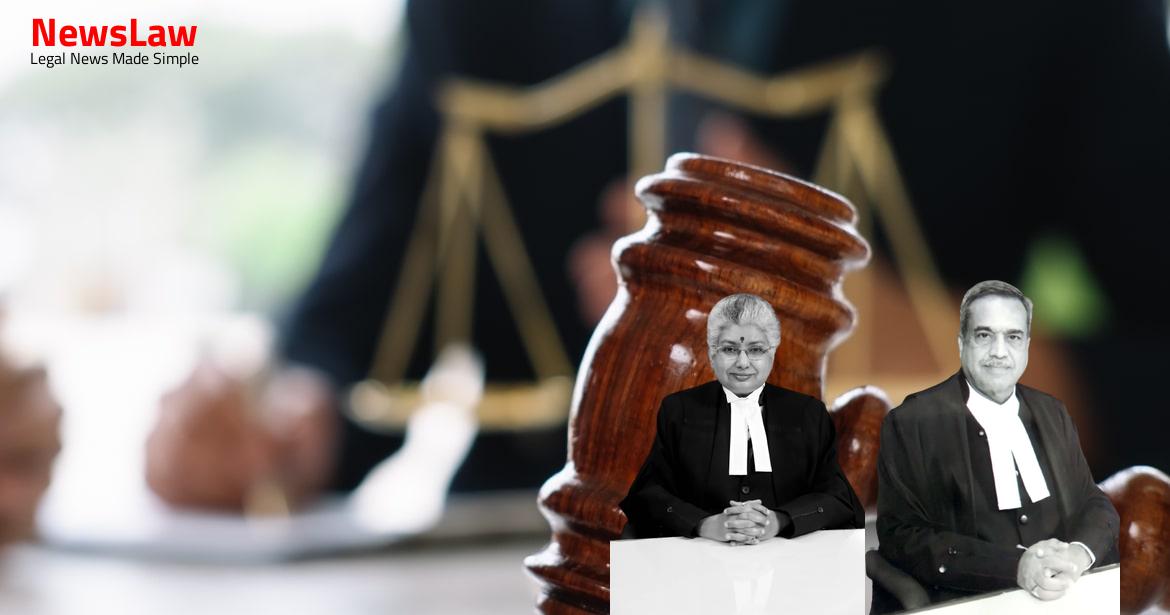In the legal case of Hindustan Petroleum v. Indian Railways, a dispute arose over freight charges. The Railway Claims Tribunal dismissed 77 claim applications of the respondent, while refund was allowed for approximately 45 claims. Hindustan Petroleum rejected all claims for the 110 km difference in freight charges, leading to an appeal to the High Court. The High Court’s judgment was based on the precedent set in the lead appeal FAO No 843 of 2014. Discover more about this case involving Hindustan Petroleum and the Indian Railways.
Facts
- The Railway Claims Tribunal dismissed 77 claim applications of the respondent as time-barred.
- Refund was allowed for approximately 45 claims by the General Manager, North Central Railway.
- The appellant rejected all claims for the 110 km difference in freight charges.
- The respondent appealed to the High Court of judicature at Allahabad under Section 23 of the Railway Claims Tribunal Act.
- A notice for refund was sent to the Western Railway under Section 78-B of the Indian Railway Act, 1890 by the Petitioner.
- The Railway Authorities charged freight based on inflated distance rate initially, which was later changed to actual distance basis from January 1, 1993.
- The Railway Boards aimed for uniformity in fare and freight charges by rounding off the chargeable distance only once.
- The distance tables were revised multiple times to correct chargeable distances for various routes.
- High Court disposed of the lead appeal FAO No 843 of 2014 and 75 other appeals based on the findings of the lead appeal.
- RCT dismissed the respondent’s claim applications as it was considered an overcharge and was time-barred.
- High Court emphasized that equity cannot override statutory provisions, rendering Section 78B of the Act, 1989 redundant.
- Lead appeal FAO No 843 of 2014 was in favor of Hindustan Petroleum based on illegal realization of freight, not overcharging.
- High Court differentiated between ‘illegal charge’ and ‘overcharge’ in the case, following the decision in Hindustan Petroleum Corp. Ltd. v. Union of India.
- Appellant challenged High Court’s orders in 75 other appeals involving Rs. 1,55,03,652/-
- Appellant requested to reverse the High Court’s judgment as circulars stated no undercharging issues or refunds would be provided retrospectively.
- Respondent’s appeal was allowed as there were no changes in the actual route or physical track length between stations.
- High Court’s judgment in all appeals was based on the precedent set in First Appeal from Order No 843 of 2014 on 23.02.2018.
Also Read: Nenavath Ravi vs. State of Telangana: Preventive Detention Order Quashed
Issue
- The respondent challenged the validity of the chargeable distance of 444 km as per the old local distance table.
- The key questions for consideration include the scope of Section 106 sub-section (3) of the Railways Act, 1989.
- The focus was on whether the chargeable distance of 444 km was correct and if the claim for a refund of the difference of 110 km in freight charges constituted an ‘overcharge.’
- As long as there is no error or patent illegality in the core charge permitted by law, it will not be deemed an illegal charge.
Also Read: Legal Analysis on Abetment of Suicide
Arguments
- The appellant railways argued that the respondent company is not entitled to any refund as the change in chargeable distance was due to a change in methodology.
- It was contended that even if the respondent is entitled to a refund of the difference in chargeable distance, it would be a case of ‘overcharge’ and the claim could be time-barred under Section 106(3) of the Act, 1989.
- The appellant railways relied on the judgment in Birla Cement Works vs G M, Western Railways, where it was held that the claims filed beyond the statutory time-limit were time-barred.
- The appellant railways charged freight from the respondent for a distance of 444 km instead of 333.18 km, which was considered as ‘illegal realization’ and not ‘overcharge’.
- Claims made by HPCL were rejected as time-barred based on Section 106(3) of the Railways Act, 1989, referring to the judgment in Birla Cement Works.
- The appellant-Union argued that Section 106 of the Railway Act, 1989 does not apply to the case due to rationalization of distances for uniform charging rates.
- The case was distinguished from Hindustan Petroleum Corporation Limited v. Union of India where the Railways had migrated to a computerized system, leading to a decrease in the notified distance.
- It was argued that the claim was not a claim for refund of an overcharge in respect of goods carried by the railway, thus not requiring notice as per Section 106(3) of the Railway Act, 1989.
- The cause of action for recovery of illegal freight realization arose on 05.07.2005 when corrected distance was notified by the Petitioner.
- Appellant railway granted refunds during the Railway Claims Tribunal case to approximately 45 claims within the statutory time period.
- During the refund process, goods continued to incur demurrage charges, which the Petitioner paid under protest.
- In a similar case of Suresh Kumar, demurrage charges were incurred due to delays in custom clearance, and a request for exemption certificate was made.
- A distinction is made between ‘illegal realization’/’illegal charge’ and ‘overcharge’ of freight amount.
- The Petitioner initially calculated freight for a distance of 444 km based on old distance tables, but later corrected it to 333.18 km on 05.07.2005.
- The primary argument of the Appellant is that the old chargeable distance of 444 km was valid as per the old methodology and distance table, hence no refund is due.
- An ‘overcharge’ is defined as an excess payment made due to a mistake of fact, which is not the case here.
- The change in policy and methodology reduced the chargeable distance from 444 km to 334 km, making the earlier freight realization for 444 km illegal.
- The Respondent filed claim petitions on 07.11.2005 for the recovery of excess amount for the extra distance that was illegally charged by the Petitioner.
Analysis
- The term ‘charge’ is defined as the price required or demanded for services rendered.
- An overcharge is defined as a charge of a sum more than permitted by law.
- An overcharge must be of the same class as a charge and not include sums collected but not due.
- The distinction between an overcharge and an illegal charge has been recognized in various court decisions.
- An illegal charge is a levy that lacks authority of law or is unlawful.
- Refund claims for overcharges must be made within a specified time limit to prevent stale or dishonest claims.
- The Gujarat High Court interpreted ‘overcharge’ in relation to railway goods as any charge in excess of what is prescribed by law.
- An overcharge must have the same character as the original charge and be related to the goods carried by railway.
- The High Courts have made distinctions between overcharges and charges prescribed by law based on the actual liability.
- Charges imposed by railways must be in accordance with the rates notified and any excess charge can be considered an overcharge.
- Section 106 of the Railways Act, 1989, is similar to Section 78B of the erstwhile Act, 1890.
- Section 106 deals with notice for claim of compensation and refund of overcharge.
- Section 106(1) allows for a claim for compensation for loss, damage, or destruction of goods carried by the railway.
- Section 106(2) allows for a claim for a refund of overcharge paid to the railway administration for goods carried by the railway.
- Claims Tribunal has jurisdiction over claims for compensation or refund from the railway administration as provided under Section 13 of the Act.
- Application may be entertained after the specified period if sufficient cause for delay is shown.
- Section 106(3) requires a notice for a refund of overcharge to be served within six months from the date of payment or delivery of goods.
- Section 106 sets pre-conditions and time limits for making claims for compensation or refund from the railway administration.
- The chargeable distance of 444 km was considered illegal due to various reasons.
- The change in methodology wouldn’t have resulted in a significant difference of 110 km.
- There were no route additions or changes in physical track length to justify the increased chargeable distance.
- The error in the chargeable distance was indicated in a letter dated 05.07.2005 and was unrelated to the Ministry of Railway’s letter introducing the new methodology.
- The appellants granted a refund without explaining the reason, contradicting their stance on the respondent’s entitlement.
- The appellant failed to prove that the chargeable distance of 444 km was correct as per the law.
- Both the Railway Claims Tribunal and the High Court found the actual distance to be 333.18 km.
Decision
- The Rajasthan State Electricity Board, an autonomous public body owned and controlled by the State Government of Rajasthan, filed an appeal.
- The appeal was allowed, and each party was directed to bear their own costs.
- The chargeable distance of 444 km was deemed illegal by the court.
- The High Court’s order was set aside, and the impugned judgment was upheld.
- Pending applications were disposed of, and the respondents were instructed to pay the admitted liability with 6% interest per annum.
- A Special Leave Petition (SLP) filed in this case was dismissed by the Supreme Court, keeping the question of law open.
- The appeals filed by the railway appellant were dismissed, and no costs were awarded.
- Payment was directed to be made within three months from the specified date.
Case Title: UNION OF INDIA Vs. M/S INDIAN OIL CORPORATION LTD (2024 INSC 243)
Case Number: C.A. No.-001891-001966 / 2024



